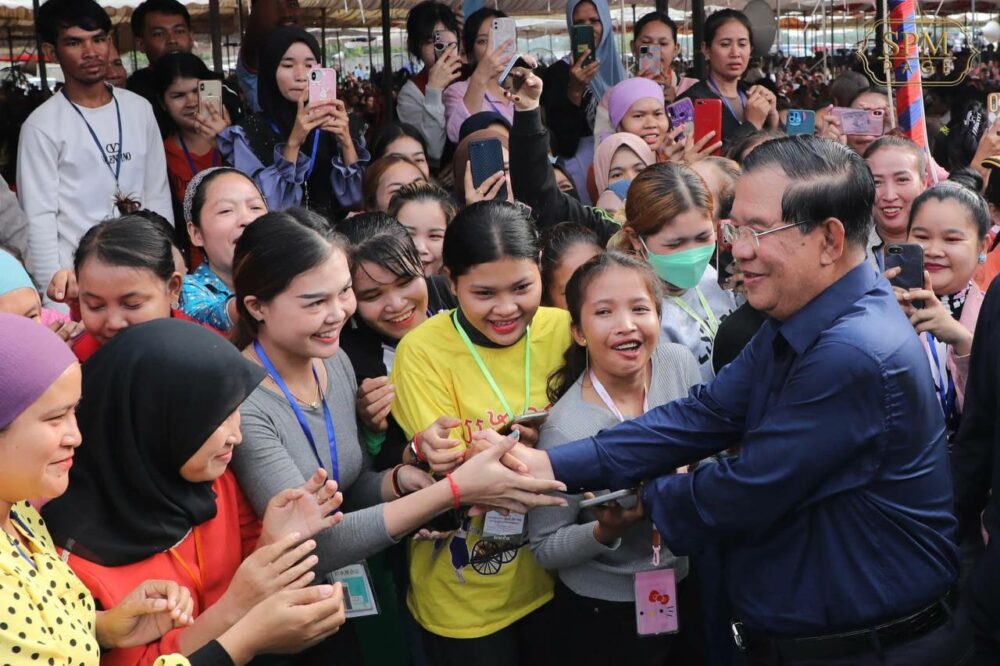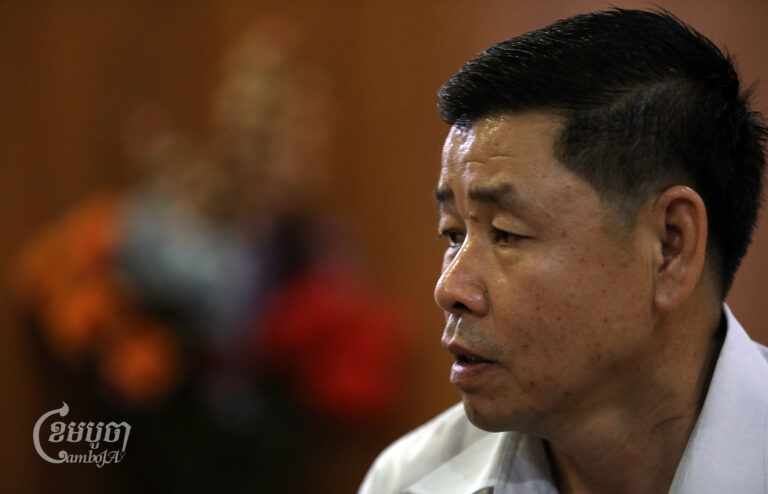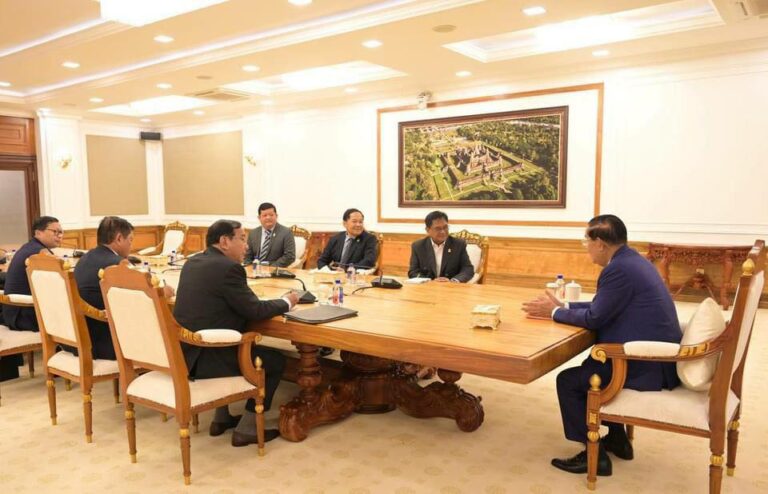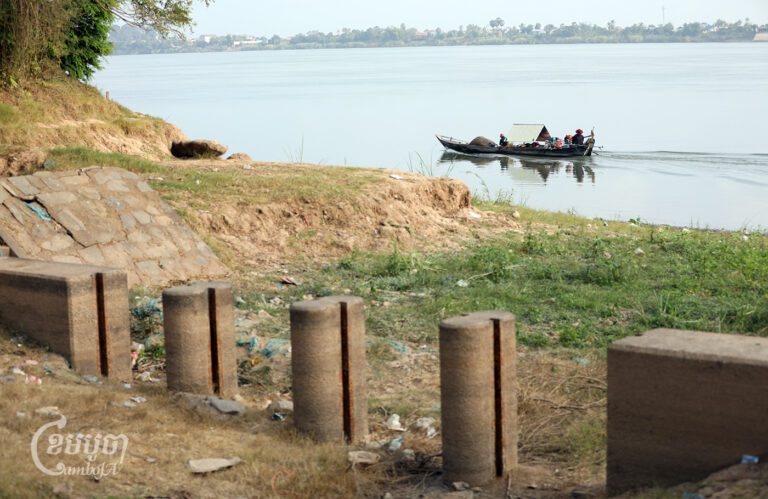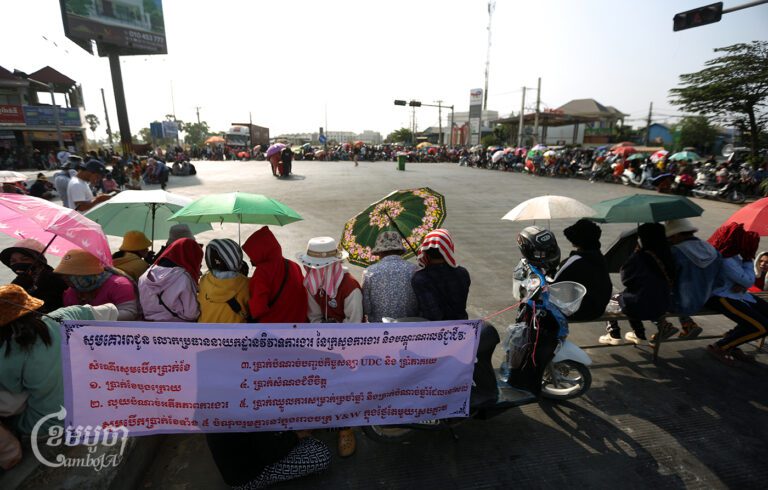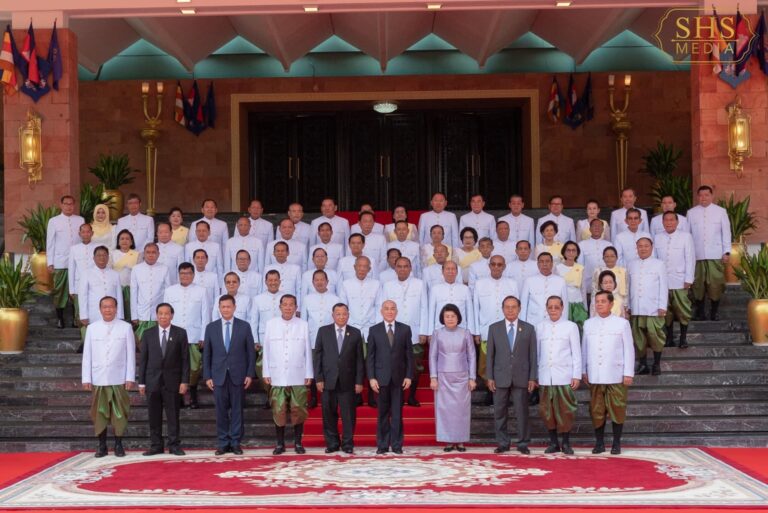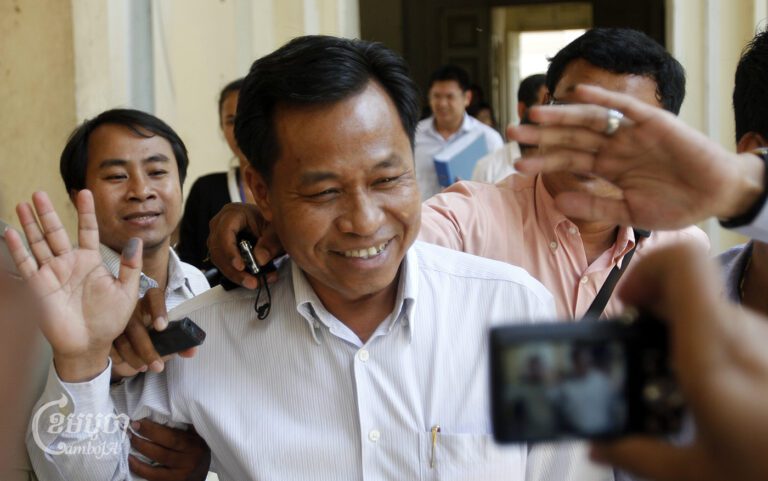Prime Minister Hun Sen told garment workers to point to “opposition groups” who were calling for economic sanctions against the Cambodian government and hold them responsible for any potential economic hardships.
The prime minister was speaking to around 20,000 garment factory workers in Kampong Chhnang province on Thursday, his third meeting with workers in the last two weeks. He said his government was working to improve the economic climate in Cambodia to attract more investment.
But there were “opposition groups” who were actively asking for sanctions against the country and trying to block the flow of aid and investment into the country. He wanted workers to clearly identify these groups for any potential reduction in workers’ incomes.
“But extremist opposition groups in Cambodia are telling foreigners not to invest in Cambodia, not to buy goods from Cambodia, and to impose further sanctions on Cambodia,” he said.
“So they are the enemies of the workers,” Hun Sen added.
Hun Sen had little tolerance for people who attempted to destroy “peace” in Cambodia, he said, and would stop it immediately.
“Whoever attempts to destroy the peace, we will not tolerate it. We must protect the peace, no matter what the cost, he said. “We do not allow anyone to destroy the peace we have.”
Hun Sen has routinely spoken about opposition groups and exiled Cambodia National Rescue Party members pushing for economic sanctions and to block aid especially in the run up to the partial revocation of the “Everything But Arms” trade privileges from the EU.
The EU in 2020 decided to partially revoke tariff-free exports for 40 products exported from Cambodian factories to the economic bloc. The European Commission cited systemic land and labor rights violations as the reason for the action.
Sam Rainsy, former CNRP president, said in 2019 that the Cambodian government should be threatened with suspension of trade privileges to spur a reversal in the country’s democratic backslide.
Reacting to Hun Sen’s speech, former CNRP vice president Mu Sochua said that when Cambodia joins trade agreements with the EU or US they are obligated to abide by human rights standards, including upholding labor rights.
“Blaming overseas groups doesn’t solve the expected sanctions,” Sochua said.
In 2019, former CNRP president Sam Rainsy said that the Cambodian government should be threatened with suspension of trade privileges to spur a reversal in the country’s democratic backslide.
“If [the government] doesn’t want Cambodia to face an economic crisis, where hundreds of thousands of workers lose their jobs, they must restore democracy,” he told VOA in November 2019.
Hun Sen last week said that the imminent loss of the EBA scheme was linked to Cambodia’s ascension as a developing country and he expected the trade benefits to end in 2026 or 2027.
“That we are losing the 20% of EBA is not [a matter of shock because] we will be losing the status 100% in the future – estimated to be in either 2026 or 2027,” he said in Kampong Speu last week, according to an official translation of his speech.
Earlier this year, the government said around 70 factories and close to 32,000 workers were affected by global economic headwinds caused by rising inflation, lowered investments, and the war in Ukraine. In 2020, during the Covid-19 pandemic, there were at least 234 factory suspensions affecting upwards of 100,000 workers.
Kong Atith, president of the Coalition of Cambodian Apparel Workers Democratic union, said he did not want to comment on the political rhetoric but wanted Cambodia — be it the government or opposition — to attract more investment that would benefit workers.
“It’s better that we work together than to point at each other. That is endless and it hurts our national interests,” he said.
(Additional reporting by Jack Brook)
Noted: This story was updated at 6:15 p.m. to include comments from Mu Sochua.


